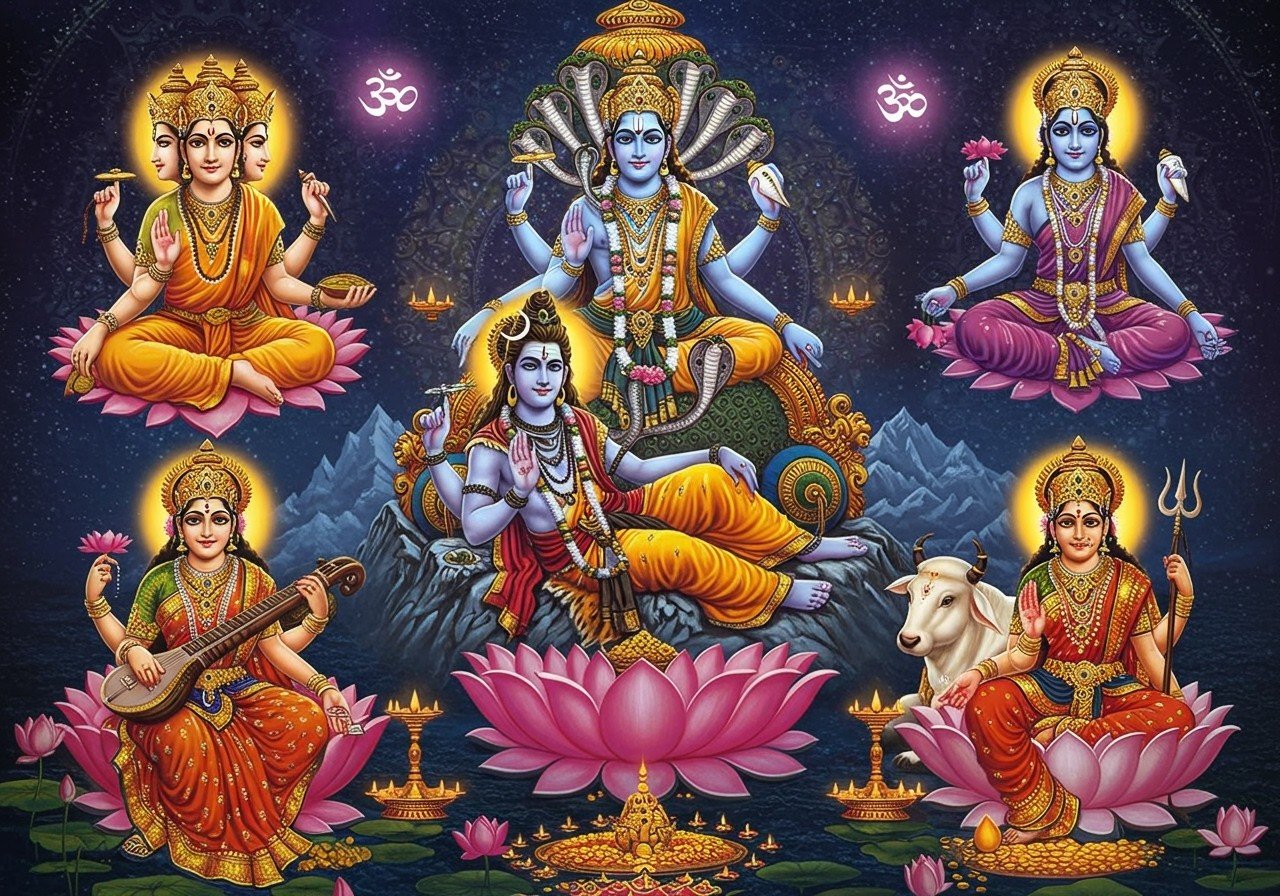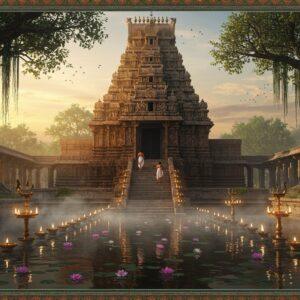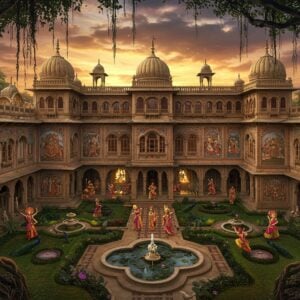
The divine energies of Hindu cosmology are often represented through the Trimurti and Tridevi, symbolizing the balance and harmony within the universe. The Trimurti, comprising Brahma, Vishnu, and Shiva, represents creation, preservation, and transformation respectively. The Tridevi—Saraswati, Lakshmi, and Parvati—embody wisdom, prosperity, and power. This blog delves into the significance of these divine figures in Hindu beliefs and their interconnected roles.
The Trimurti: Divine Masculine Energies
The Trimurti represents the three fundamental forces responsible for the cosmic cycle. Brahma, the creator, brings the universe into being. Vishnu, the preserver, maintains order and balance. Shiva, the transformer, oversees destruction and renewal. These three deities work in concert to maintain the continuous flow of existence.
The Tridevi: Divine Feminine Energies
The Tridevi are not mere consorts but powerful goddesses in their own right, embodying essential qualities that complement the Trimurti. Saraswati, the goddess of knowledge and wisdom, is the consort of Brahma. Lakshmi, the goddess of wealth and prosperity, is paired with Vishnu. Parvati, the goddess of power and strength, is the consort of Shiva. Their combined energies contribute to the overall harmony of the universe.
Symbolic Relationships and Cosmic Balance
The relationships between the Trimurti and Tridevi are deeply symbolic, representing the interplay of masculine and feminine energies. Brahma’s creative power is guided by Saraswati’s wisdom. Vishnu’s preservation is sustained by Lakshmi’s abundance. Shiva’s transformation is tempered by Parvati’s strength. This delicate balance is essential for the universe’s stability.
Cultural Significance and Contemporary Relevance
The Trimurti and Tridevi are deeply embedded in Hindu culture, worshipped in temples and celebrated through festivals. Their stories offer guidance for navigating life’s challenges. Even in contemporary times, their teachings on balance and harmony remain relevant, particularly in discussions of gender equality and ecological sustainability. Explore our comprehensive guide on Hindu Gods and Goddesses for a deeper understanding.
Poojn.in: Supporting Your Devotion
At Poojn.in, we offer a wide selection of authentic puja items to enhance your worship of the Trimurti and Tridevi. Our offerings include:
- Complete Puja Sets: Find everything you need for Vishnu, Shiva, and other deities, including malas, incense, and more.
- Specific Deity Items: We offer specialized items like rudraksha malas for Shiva and Lakshmi puja thalis.
- High-Quality Materials: Our products are made from pure copper, brass, and other traditional materials. Check out our exquisite brass Radha-Krishna murti.
- Pan-India Delivery: We deliver across India with secure packaging to protect your sacred items.
Visit poojn.in today to explore our complete collection and experience the convenience of online shopping for your devotional needs.
Exploring the Diversity of Hindu Deities
Hinduism embraces a wide spectrum of deities, encompassing male, female, androgynous, and even forms beyond gender. This diversity reflects the expansive nature of the divine.
Male Deities
- Brahma: The creator god, responsible for bringing the universe into existence. He is often depicted with four heads, symbolizing his all-encompassing knowledge.
- Vishnu: The preserver god, maintaining cosmic order and balance. Vishnu is known for his ten avatars, each playing a significant role in upholding dharma.
- Shiva: The transformer god, associated with destruction and renewal. He represents the cyclical nature of time and the constant process of change.
- Ganesha: The elephant-headed god, remover of obstacles, and son of Shiva and Parvati. He is revered as a symbol of wisdom and good fortune.
- Skanda: The god of war and victory, also a son of Shiva and Parvati. Skanda is often depicted riding a peacock, symbolizing his divine power.
For those seeking to deepen their understanding of Lord Shiva, our blog post on Vishnu the Preserver offers valuable insights. If you are looking for sacred murtis for your home, consider this beautiful marble dust murti of Lord Shiva.
Female Deities
- Parvati: The consort of Shiva, embodying love, devotion, and fertility. She represents the nurturing and benevolent aspects of the divine feminine.
- Lakshmi: The goddess of wealth, fortune, and prosperity. She is associated with abundance and is often depicted with lotuses, symbolizing purity and spiritual growth.
- Saraswati: The goddess of knowledge, music, and the arts. Saraswati represents wisdom and creativity, essential for both material and spiritual progress.
- Durga: A fierce form of the goddess, known for her strength and power. She is often depicted riding a lion and slaying demons, symbolizing her triumph over evil.
- Kali: The goddess of time and change, often associated with destruction and transformation. She represents the cyclical nature of existence and the inevitability of death and rebirth.
Androgynous Forms
- Ardhanarishvara: A composite form of Shiva and Parvati, representing the fusion of masculine and feminine energies. This form symbolizes the inherent duality and interconnectedness of all things.
To enhance your worship of these powerful goddesses, consider our high-quality Mangalam camphor.
Embracing the Divine Within
The diverse pantheon of Hindu deities offers a rich tapestry of symbolic representations of the divine. By understanding their roles and relationships, we can gain a deeper appreciation for the complexities of Hindu cosmology. These deities provide a framework for understanding the balance of masculine and feminine energies within ourselves and the world around us, ultimately guiding us towards spiritual growth and a more harmonious existence.
Delve deeper into the power of mantras with our insightful blog post. And for those interested in setting up a personal puja altar, our guide provides valuable information and resources. Create your sacred space today.


